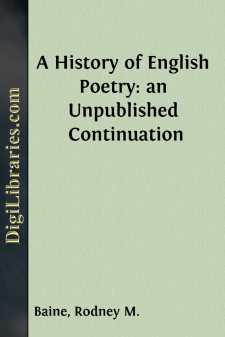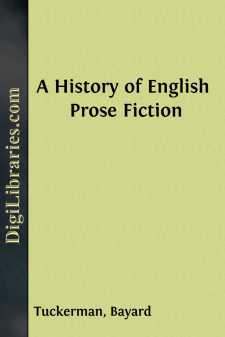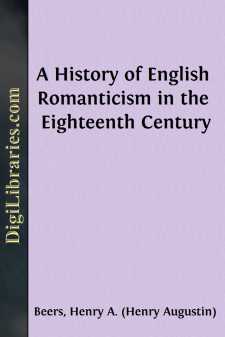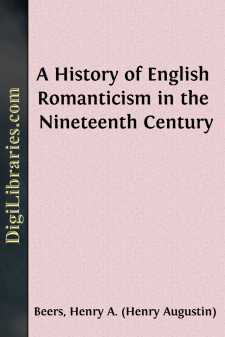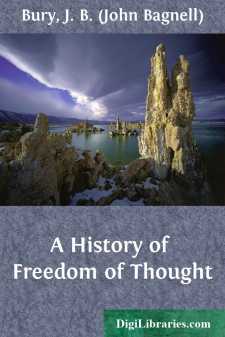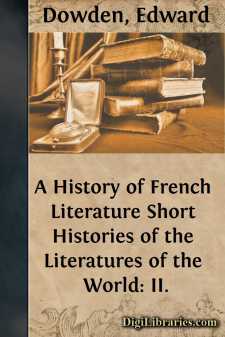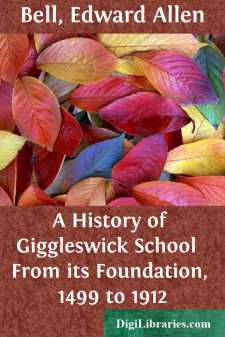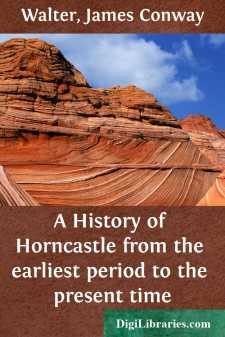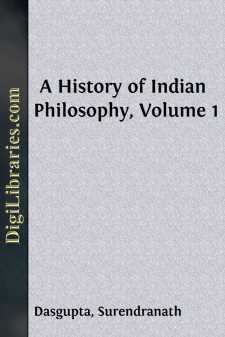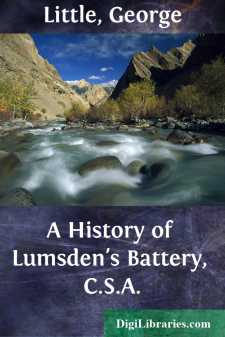Categories
- Antiques & Collectibles 13
- Architecture 36
- Art 48
- Bibles 22
- Biography & Autobiography 813
- Body, Mind & Spirit 142
- Business & Economics 28
- Children's Books 15
- Children's Fiction 12
- Computers 4
- Cooking 94
- Crafts & Hobbies 4
- Drama 346
- Education 46
- Family & Relationships 57
- Fiction 11828
- Games 19
- Gardening 17
- Health & Fitness 34
- History 1377
- House & Home 1
- Humor 147
- Juvenile Fiction 1873
- Juvenile Nonfiction 202
- Language Arts & Disciplines 88
- Law 16
- Literary Collections 686
- Literary Criticism 179
- Mathematics 13
- Medical 41
- Music 40
- Nature 179
- Non-Classifiable 1768
- Performing Arts 7
- Periodicals 1453
- Philosophy 64
- Photography 2
- Poetry 896
- Political Science 203
- Psychology 42
- Reference 154
- Religion 513
- Science 126
- Self-Help 84
- Social Science 81
- Sports & Recreation 34
- Study Aids 3
- Technology & Engineering 59
- Transportation 23
- Travel 463
- True Crime 29
Sort by:
by:
Rodney M. Baine
INTRODUCTION Among the unpublished papers of Thomas and Joseph Warton at Winchester College the most interesting and important item is undoubtedly a continuation of Thomas Warton's History of English Poetry. This continuation completes briefly the analysis of Elizabethan satire and discusses the Elizabethan sonnet. The discussion offers material of interest particularly for the bibliographer and...
more...
by:
Bayard Tuckerman
CHAPTER I. THE ROMANCE OF CHIVALRY. I In the midst of an age of gloom and anarchy, when Feudalism was slowly building up a new social organization on the ruins of the Roman Empire, arose that spirit of chivalry, which, in its connection with the Christian religion, forms so sharp a division between the sentiments of ancient and modern times. Following closely on the growth of chivalry as an...
more...
CHAPTER I. The Subject Defined To attempt at the outset a rigid definition of the word romanticism would be to anticipate the substance of this volume. To furnish an answer to the question—What is, or was, romanticism? or, at least, What is, or was English romanticism?—is one of my main purposes herein, and the reader will be invited to examine a good many literary documents, and to do a certain...
more...
CHAPTER I. Walter Scott.[1] It was reserved for Walter Scott, "the Ariosto of the North," "the historiographer royal of feudalism," to accomplish the task which his eighteenth-century forerunners had essayed in vain. He possessed the true enchanter's wand, the historic imagination. With this in his hand, he raised the dead past to life, made it once more conceivable, made it even...
more...
CHAPTER I FREEDOM OF THOUGHT AND THE FORCES AGAINST IT IT is a common saying that thought is free. A man can never be hindered from thinking whatever he chooses so long as he conceals what he thinks. The working of his mind is limited only by the bounds of his experience and the power of his imagination. But this natural liberty of private thinking is of little value. It is unsatisfactory and even...
more...
by:
Edward Dowden
PREFACE French prose and French poetry had interested me during so many years that when Mr. Gosse invited me to write this book I knew that I was qualified in one particular—the love of my subject. Qualified in knowledge I was not, and could not be. No one can pretend to know the whole of a vast literature. He may have opened many books and turned many pages; he cannot have penetrated to the soul of...
more...
PREFACE The history of Giggleswick School has just two difficulties about it which need to be unravelled. The date of the foundation of the School or of the Chantry of the Rood and the origin of the Seal alone are of interest to the antiquary and I have failed to discover either. The remainder is the story of a school, which has always had a reputation in the educational world and at the same time has...
more...
PREFACE. The following pages may truthfully be said to be the result of labours, extending over many years, and of researches in directions too many to tell. Born within almost a mile of Horncastle, and only by a few months escaping being born in it, since his father, on first coming to the neighbourhood, resided for a time in Horncastle, the author, from his earliest years (except for periodical...
more...
CHAPTER I INTRODUCTORY The achievements of the ancient Indians in the field of philosophy are but very imperfectly known to the world at large, and it is unfortunate that the condition is no better even in India. There is a small body of Hindu scholars and ascetics living a retired life in solitude, who are well acquainted with the subject, but they do not know English and are not used to modern ways...
more...
by:
George Little
At the close of the spring term of the Circuit Court of Tuscaloosa County, Alabama, in May, 1861, Judge Wm. S. Mudd announced from the bench that Mr. Harvey H. Cribbs would resign the office of Sheriff of the County for the purpose of volunteering into the Army of the Confederate States and would place on the desk of the Clerk of the Court an agreement so to volunteer signed by himself, and invited all...
more...


